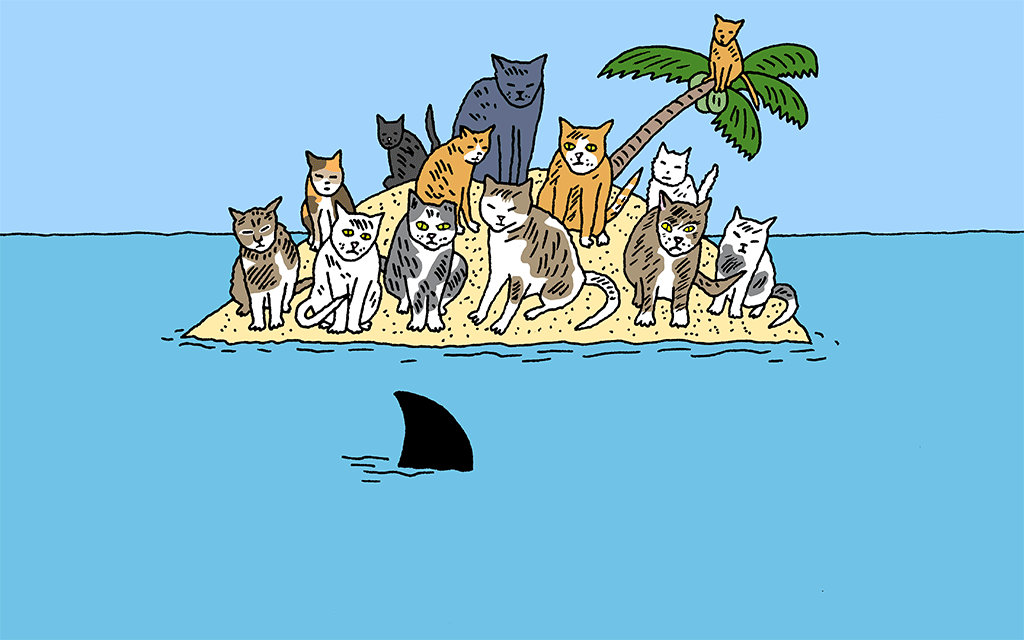ICYMI: Cat Island, Time for Reparations & Happy Crayfish Get Eaten
A weekly roundup for busy people

In the midst of the pandemic, Brazilians abandon hundreds of cats on a deserted island, the Ilha dos Gatos: Island of the Cats.
More than 600,000 people in the United States have died from COVID-19.
On Juneteenth, the Sierra Club calls for reparations for slavery to be paid to Black Americans.
An early summer “heat dome” settles over western states, leading to many temperature records of 115°F and above.
In the midst of the heat wave, Texas’s electric grid falters once again, leading officials to call on customers to limit their AC use. A new analysis of the state’s grid collapse last winter—which Texas politicians falsely blamed on renewables—shows that it may have killed as many as 700 people.
After a 13-year closure for repairs following the 2008 Basin Complex Fire in Big Sur, California, the popular Pfeiffer Falls trail reopens.
Sixty percent of the world’s rivers stop flowing for at least one day a year.
Oakley, Utah, is no longer issuing building permits that require new water connections.
The US solar market surpasses 100 gigawatts of installed electricity generating capacity. In the first quarter of 2021, solar accounted for more than half of all new electric capacity additions.
Spacewalking astronauts install powerful new solar panels on the International Space Station.
Interior Secretary Deb Haaland recommends full restoration of the three national monuments that Donald Trump downsized.
Yellowstone National Park had a record number of visitors in May.
The Group of 7 industrial nations agree to cut their carbon emissions by 2030 but fail to set an end date for burning coal.
The Sierra Club sues Coca-Cola and other bottlers for misleadingly advertising their plastic bottles as “100% Recyclable.”
Declaring electric vehicle owners to be “free riders” because they don’t pay gas taxes, Senator Susan Collins (R-Maine) proposes a tax on EVs as part of a bipartisan infrastructure deal.
Oregon legalizes natural human burial, a.k.a. “human composting.”
Crawfish exposed to water polluted by anti-depressants are more likely to come out of their shells—and be eaten by predators.
 The Magazine of The Sierra Club
The Magazine of The Sierra Club



